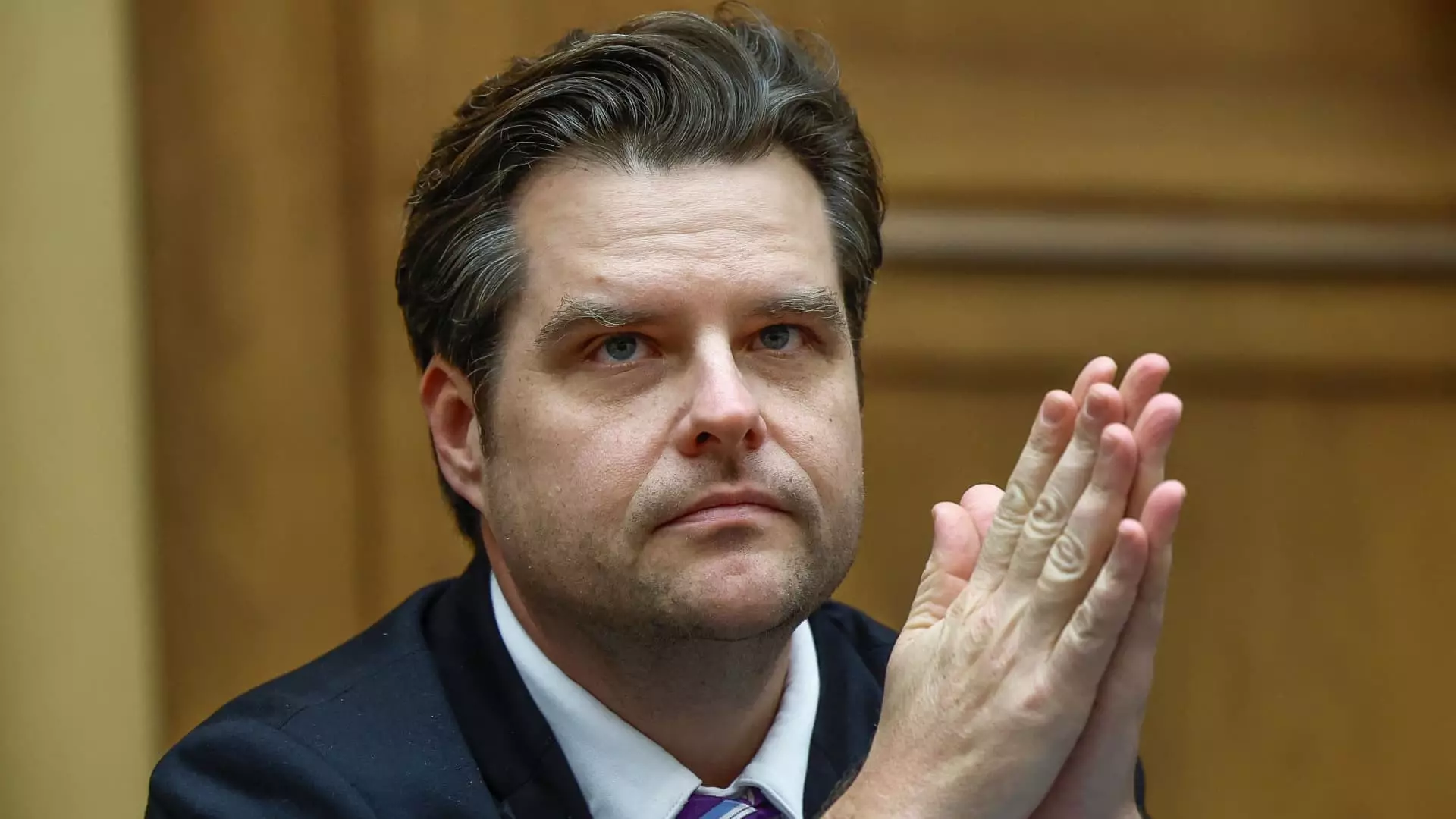The political landscape in the United States is often rife with scandals, but few have held public interest as fervently as the case surrounding former Republican Representative Matt Gaetz. A recent investigation by the House Ethics Committee has unearthed troubling findings that have not only tarnished Gaetz’s reputation but also called into question the integrity of the political system itself.
The Ethics Committee’s report is a culmination of an extensive investigation that spanned over two years. It revealed “substantial evidence” indicating that Gaetz had engaged in sexual relations with a minor—a 17-year-old girl—in 2017. Furthermore, the committee found that Gaetz “regularly” compensated women for sex during his tenure in Congress. These severe allegations are coupled with accusations of illicit drug use and the receipt of extravagant gifts, indicating a pattern of misconduct that may not only violate House Rules but also state and federal laws.
The report underscores the severity of these actions, concluding that Gaetz’s behavior “reflects discreditably upon the House.” This phrase carries significant weight, as it implies a detriment to the integrity of the legislative body itself. Such a stark conclusion raises questions about the ethical standards expected of those in public service, and whether they adhere to them.
While the Committee presented a compelling case against Gaetz regarding various violations, it notably did not find sufficient evidence to support charges of federal sex trafficking. This distinction could prove pivotal, as trafficking allegations carry heavier legal and moral implications. The report suggests that Gaetz did, in fact, facilitate the transportation of women across state lines for sexual purposes; however, the findings revealed that these women were not underage during the time of transport, and thus the trafficking statutes could not be applied.
This dichotomy in findings illustrates the complexities of the law and the limits of the Committee’s investigation. Although the committee identified numerous ethical violations, the inability to substantiate sex trafficking allegations demonstrates the challenges in navigating the legal ramifications of behavior that may be morally reprehensible yet legally ambiguous.
In direct response to the release of the Ethics Committee’s findings, Gaetz vehemently denied the allegations through social media, claiming that the timing of the report is emblematic of political maneuvering against him. His insistence that he was being treated unfairly raises a crucial debate about how political figures handle accusations—especially when it feels as though investigations are politically motivated or procedurally flawed.
Moreover, the optics of Gaetz being chosen as a candidate for U.S. Attorney General by former President Donald Trump, despite ongoing investigations, raises serious concerns about the vetting process within political appointments and the inherent risks of placing individuals with questionable backgrounds into positions of significant power. Gaetz’s withdrawal from consideration after just eight days as Trump’s pick highlights how quickly reputations can falter, particularly within the polarized and politically charged environment of Washington, D.C.
The consequences outlined in the report and Gaetz’s subsequent resignation serve as a stark reminder of how far-reaching political scandals can be. They not only impact the individuals involved but can also influence the public’s trust in government institutions. As more details come to light regarding Gaetz’s financial dealings and drug use, the implications for his associates—such as former tax collector Joel Greenberg—emphasize a larger narrative of complicity and corruption that extends beyond the actions of a single representative.
The combination of witnesses, subpoenas, and documentation has painted a picture of a deeply problematic individual whose actions demand accountability, not just for his sake but also for the integrity of the political system as a whole. As the American public continues to grapple with incidents of misconduct among its leaders, the challenge remains: how do they ensure a government that reflects their values?
Matt Gaetz’s case serves as a cautionary tale for elected representatives and the electorate alike. It underscores the need for rigorous ethical standards and accountability measures in Congress. In an era where transparency is paramount, the revelations brought forth by the Ethics Committee may not only serve to hold Gaetz accountable but could also spark a broader discourse on the ethical obligations of public officials. Ultimately, this case could initiate a renewed call for stricter protocols to uphold the integrity of governmental roles and, in doing so, restore some degree of public trust in political institutions.


Leave a Reply